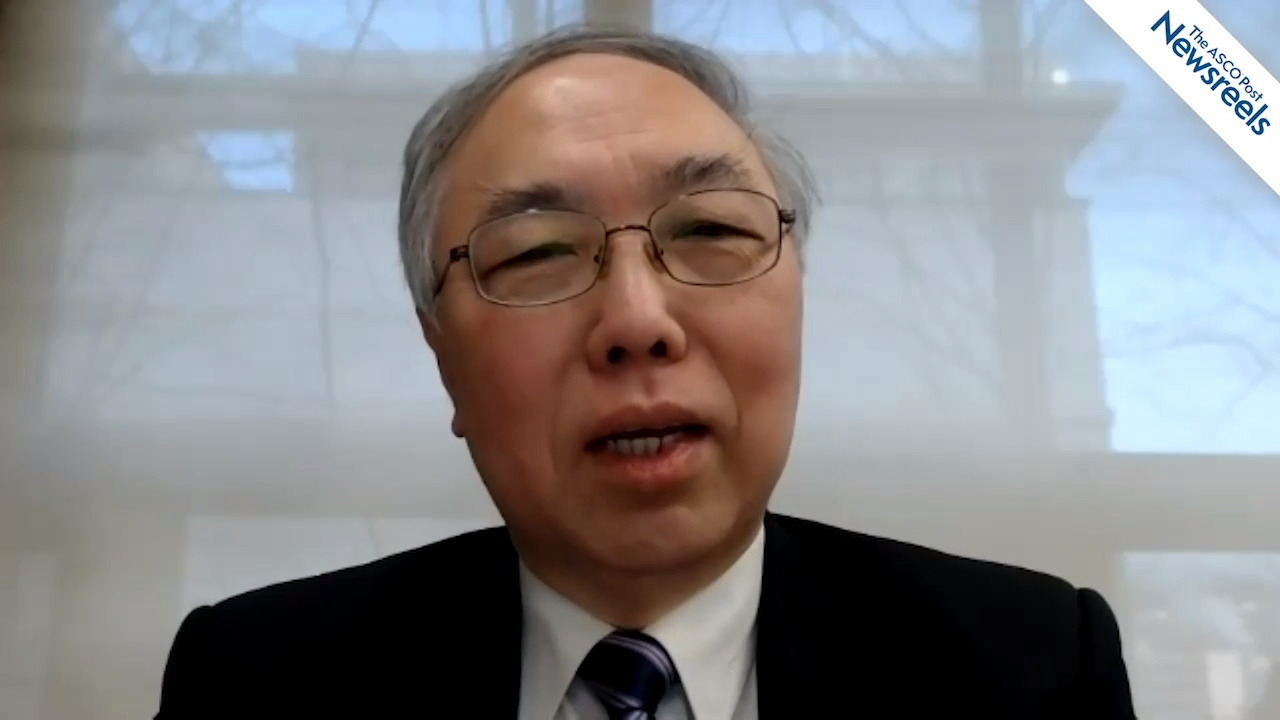Rebecca S. Kristeleit, MD, PhD, on Relapsed Ovarian Cancer: Rucaparib vs Chemotherapy
SGO 2021 Virtual Annual Meeting on Womens Cancer
Rebecca S. Kristeleit, MD, PhD, of the University College London and UCL Cancer Institute, discusses efficacy and safety results from the phase III ARIEL4 study, which showed that rucaparib improved progression-free survival vs standard-of-care chemotherapy in patients with BRCA-mutated, platinum-resistant, or platinum-sensitive relapsed ovarian cancer (ID #10191).
The ASCO Post Staff
Amir A. Jazaeri, MD, of The University of Texas MD Anderson Cancer Center, discusses data on the safety and efficacy of adoptive cell transfer using autologous tumor-infiltrating lymphocytes (LN-145) to treat patients with recurrent, metastatic, or persistent cervical carcinoma whose tumors have progressed on prior systemic therapy (ID # 10224).
The ASCO Post Staff
Charles N. Landen, MD, of the University of Virginia, discusses results from the first clinical trial in ovarian cancer to demonstrate that neither a BRCA1/2 mutation nor a homologous recombination deficiency improves sensitivity to a therapeutic PD-L1 blockade in patients receiving atezolizumab vs placebo combined with carboplatin, paclitaxel, and bevacizumab for newly diagnosed disease (ID #10240).
The ASCO Post Staff
Alice P. Barr, MD, of the Carolinas Medical Center and Levine Cancer Institute, discusses results from a retrospective study, which showed that progression-free and overall survival appeared to be no different with open surgery and minimally invasive surgery for interval debulking after neoadjuvant chemotherapy in women with advanced epithelial ovarian cancer. Perioperative outcomes also seemed to be superior with minimally invasive surgery (ID #10209).
The ASCO Post Staff
William H. Bradley, MD, of the Medical College of Wisconsin, discusses results from the SOLO-1 trial on maintenance olaparib after first-line platinum-based chemotherapy for patients with newly diagnosed advanced ovarian cancer and a BRCA mutation. Almost half of the patients treated with olaparib in the study were disease-free at 5 years, vs 20% of those treated with placebo (ID# 10224).
The ASCO Post Staff
Hyun C. Chung, MD, of Yonsei Cancer Center and Yonsei University College of Medicine, discusses phase II findings from the KEYNOTE-158 study, which support the use of pembrolizumab for patients with recurrent or metastatic cervical cancer that has progressed on or after chemotherapy and whose tumors express PD-L1.





